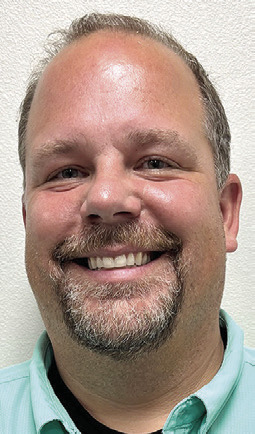Will combination of possible cuts and mandates be too much to handle?
The Senate Human Services Omnibus bill on the table at St. Paul is an eyeopener for Brian Hinrichs, but not in a good way.
Hinrichs is the executive director of Prairie View Senior Living, and so deep are the projected cuts to elder care facilities that Hinrichs was driven to craft a letter to District 15 Sen. Gary Dahms, a Republican from Redwood Falls.
Gov. Tim Walz’s proposed budget cuts nursing homes reimbursements by $700 million statewide over four years. Locally, it could have devastating effects.
“It’s very aggravating,” Hinrichs said.
“We’re taking care of the most vulnerable population; they want to take away funding but increase regulation costs with no additional funding. As a state, we say how much we love our elderly, but we are going to do this to them? This could possibly close a third of the nursing homes in the state.”
Prairie View — now one of only two nursing facilities in Lyon County (Avera Morningside Heights Care in Marshall is the other), according to Medicare.gov — is a 45-bed facility that serves Tracy and other small communities.
Hinrichs estimates the proposed bill would have at least a four-year impact on Prairie View, with cuts that would deepen more every year throughout that span from $188,003 in 2026 to $288,999 in 2029. The bill would result in a total funding decrease of $966,977 from Jan. 1, 2027-Jan. 1, 2029.
‘
As a state, we say how much we love our elderly, but we are going to do this to them? This could possibly close a third of the nursing homes in the state.
— BRIAN HINRICHS, PRAIRIE VIEW EXEC. DIR.

“I don’t know how we would absorb a million-dollar loss over four years,” Hinrichs said. “With increasing wages, insurance costs, food costs … everything just keeps going up and up.”
Hinrichs said there are four significantly problematic proposals in the bill: the elimination of bed closure incentives; a 4% cap on operating rate increases; a new formula for the care-related cost limit; and a per enrollee cap on employer health insurance premiums The proposed bill (parts of it has already passed) also enacts mandates of the Nursing Home Workforce Standards Board without any funding to aging services providers to cover them.
Hinrichs believes Prairie View might not be able to take on these cuts and unfunded mandates.
While the bill includes an increase to the Critical Access Nursing Facility Program, which Prairie View has qualified for as a facility considered to be in finanical distress — the cuts in the proposed Senate bill surpass the needs this fund will be able to support statewide, Hinrichs said.
The Critical Access Nursing Facility Program will amount to $12.50 per resident per day extra. An average month could bring in an extra $15,000 to $16,000. Still, Hinrichs is vexed about the Legislature’s spending decisions over the last couple of years.
“We went from an $18 billion surplus to a $5 billion deficit in two years, and now we’re going to say nursing homes are costing too much money and cut them?” Hinrichs said. “It doesn’t sound like a problem the nursing homes are causing. Where’d all that money go? Minnesota throws money at people who need help all the time … but we’re going to take it away from nursing homes? If a third of our nursing homes close who’s going to take care of those people?”
Also looming for Minnesota nursing facilities’ bottom line is the proposal from the newly-created Nursing Home Workforce Standards Board to establish a new baseline for minimum wage standards for certain nursing home occupations — certified nursing assistants, trained medication aides, and licensed practical nurses beginning January 2027.
The proposal would increase the minimum wage for CNAs from $22.50 per hour to $24 per hour; for trained medication aides it would go up from $23.50 per hour to $25 per hour; and for licensed practical nurses, the increase would be from $27 per hour to $28.50 per hour. General wage standards for other workers would rise from $19 per hour to $20.50 per hour.
Prairie View employs 60 people.
Hinrichs said he isn’t necessarily against his workers getting a pay increase, but it could spell even more trouble if the proposed Senate bill is passed. The Nursing Home Workforce Standards Board voted in April to support the minimum wage increases.
The latest session of the Minnesota Legislature ended May 19, and legislators will reconvene for a special session sometime soon. If a balanced budget isn’t agreed upon, the state government would shut down on July 1.



